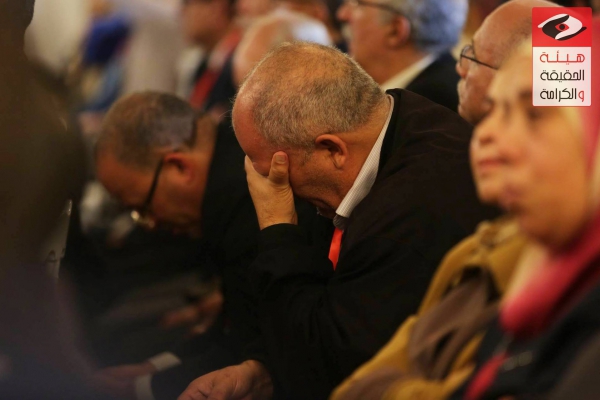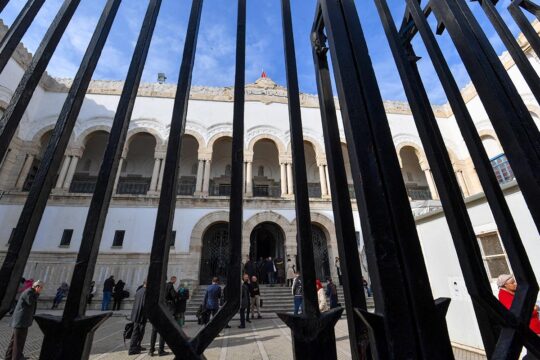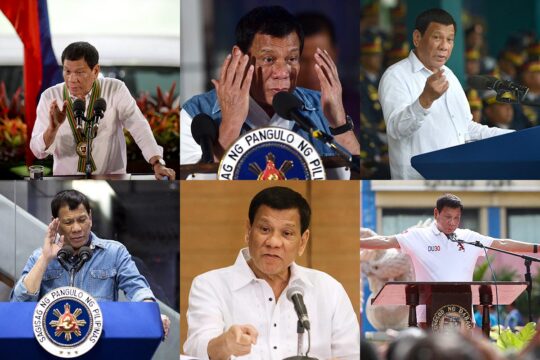The first public hearings of victims started this week in Tunisia while the International Criminal Court (ICC), holding its annual Assembly of States Parties, suffered criticism and a new symbolic departure – that of Russia, which has signed the Treaty of Rome (founding treaty of the ICC) but not ratified it.
“Public hearings of Tunisian victims of dictatorship over more than 50 years (1955-2013) started on Thursday at the Club Elyssa, property of the former First Lady,” writes JusticeInfo’s Tunis correspondent Olfa Belhassine. “Seven victims of grave human rights abuses, selected by the Truth and Dignity Commission (IVD), gave testimonies that were both dignified and poignant. The testimonies were broadcast live on national television, and will continue for more than a year.”
These historic hearings in the only survivor country of the Arab Spring have not been without controversy, notably with regard to IVD President Sihem Bensedrine. “Most of the current government team declined the invitation to attend,” Olfa Belhassine continues. “None of Tunisia’s three presidents since Ben Ali was present.” “A clear boycott” wrote Tunisian Internet users, who were extremely active on the Web until the early hours of a day they deemed “historic”.
In an interview with JusticeInfo.net, Refic Hodzic, a specialist in transitional justice and advisor to ICTJ (International Center for Transitional Justice), explains that “transitional justice processes take place in a polarized context. The media that are hostile attack Truth Commissions constantly to try to reduce their credibility. They tend to focus instead on peripheral facts that are far from the essence of these institutions’ work. They talk of everything except what is most important: the 62,000 case files that the IVD has received and which prove the trust of victims in this body, or the 11,000 interviews the Commission has conducted over several months in all regions of the country. The public hearings have the merit that they do not allow the media to ignore them.”
Another important event taking place this week was a donor conference in Brussels on November 17 for the Central African Republic (CAR), with CAR President Faustin Touadéra attending. Donors pledged some 2.2 billion Euros for this lawless country ravaged by civil war, under-development and chronic insecurity, to “help the authorities restore peace and security, renew the social contract and revive the economy”, according to a European Union statement.
President Touadéra also promised that the Special Court would be operational by January, saying that this would prove his government’s commitment to the fight against impunity. The creation of this Court, approved by a law in 2015, is long awaited by NGOs. In theory, it should allow the main perpetrators of war crimes and crimes against humanity to be brought to justice. But doubts remain about the capacity of the CAR and its President to implement the reconciliation programme, especially since State authority is non-existent in much of the country.
“The election of President Touadéra was hailed by most Central Africans, and it raised a lot of hopes,” jurist Didier Niewiadowski said in an interview with JusticeInfo. “But today, the disappointment is more and more apparent. Like his predecessors, he has quickly succumbed to nepotism and cronyism, which has undermined the good opinions people had of him. His doing nothing about the ex-Seleka militia and being well disposed towards the Antibalaka militia will only fuel citizens’ frustration and the rise of civil society, which is starting to resist.”
For the moment, the country’s main hopes are expressed in the promotion to Cardinal of Dieudonné Nzapalainga, Archbishop of Bangui, seen as a symbol of reconciliation. “For three years, the Archbishop of Bangui has been travelling the country with Imam Oumar Kobine Layama, President of the Islamic Council, and Nicolas Guerekoyame-Gbangou, President of the Evangelical Council, as part of a campaign to appease ethnic and religious tensions,” writes Ephrem Rugiririza of JusticeInfo. “The Archbishop, who has been made a cardinal at 49, has never stopped reminding his fellow citizens, Christian or Muslim, that they are all brothers.







